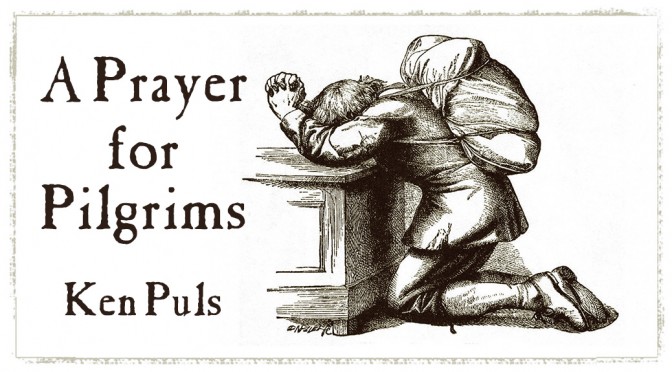Down through the ages church history has displayed a rich tapestry of praise to the glory of God. Included in the music of the church are many beloved hymns that have stood the test of time and have become lasting contributions to the church’s voice in worship. These are songs that resonate beyond their age, with proven quality and depth.
There is no question that we should continue to sing and cherish the old, established, proven hymns of the faith. They remind us that we are part of something much bigger than ourselves. God is at work in every age accomplishing His purposes and building His church. His Kingdom reaches throughout history and across nations and languages. The old hymns of the faith are the voices and echoes of the past that testify to the greatness and faithfulness of God through the ages.
But how should we sing the great old hymns of the faith? How do we add our voices in the present to songs from the past in ways that will allow us to share in the praise and benefit from the testimony of saints who have gone before us?
Or to ask the question another way: Is it more authentic to sing the great hymns of the faith just as they were written? Should we aim to preserve them in the style and form in which they were composed? Or is it more authentic to recognize that we live in a new day and aim to craft our music to reflect the styles of today? Should we take the old hymns and give them a fresh sound, adjusting and adapting them to fit our voice and our time?

Many have strong preferences regarding how we sing the music of the past. Some believe the old beloved songs should be left as is and not “messed up” by making them sound contemporary. Others are convinced that the old hymns are more meaningful and accessible in our day when we re-craft them with new settings and new tunes.
Authenticity is measured differently across styles of music. For classical music an authentic sound might be judged by how close the musicians come to expressing the original intentions of the composer. Deviating from the notation, altering or re-arranging the tune would dilute the song and make it inauthentic and unstylistic. For jazz authenticity might be judged by the musicians’ creativity and skill at improvisation. The idea of playing a song as written, or playing it the same way it was played yesterday (or even a few moments ago) would be absurd.
But authenticity in worship is never a matter of our own creativity or our adherence to musical form. Authenticity is always a matter of the heart. Our aim in worship is glorifying God, not exalting one way of singing over another. We come to proclaim truth, not preserve musical form or flaunt musical talent. We come to magnify Christ, not measure the greatness of our songs.
God’s worship cannot be contained by our preferences, within our comfort zones, and inside our creativity. Paul’s descriptive words for church music, psalms and hymns and spiritual songs, encompass the great breadth and scope of music in the church that God is orchestrating to His own glory.
So how then should we sing the great old hymns of the faith?
The answer is with hearts enlivened by God’s grace and moved by God’s glory. And this can take many forms. There will be times (and places) when we use older and beloved settings of great hymns. At times we might sing new songs that borrow or incorporate older hymns (songs such as Cornerstone from Hillsong that uses the verses from The Solid Rock or Lord I Need You from Matt Maher that quotes I Need Thee Every Hour). And at times we might sing older hymns with a new arrangements and tunes (songs such as Glorious Day – Living He Loved Me, sung by Casting Crowns, that updates One Day or God Moves from Sovereign Grace Music that updates William Cooper’s hymn God Moves in a Mysterious Way). But at all times we must sing from our hearts with passions more enflamed for God’s glory than stoked by personal preferences.
There are some compelling reasons why we should see the music of the church as fluid and dynamic, rather than rigid and inviolate.
1. God has designed our music to be necessarily contemporary. Most of the music of the church only lasts for the moment. It serves its day and then fades to make room for new songs. Even with the Old Testament psalms, thousands were composed and sung in worship in the tabernacle and Temple, but only 150 were set down and preserved in Scripture. Relatively few hymns and songs have continued on to become the treasured music of the church. But whether we sing the music from the past or new songs from our own day, our singing is contemporary. It is the church lifting its voice in worship to God now in the present.
2. With the psalms God gave us a mandate and set a precedent for our worship. We are commanded in Scripture:
Sing praises to God, sing praises!
Sing praises to our King, sing praises!
For God is the King of all the earth;
sing praises with a psalm!
(Psalm 47:6–7)
The psalms continue into the New Testament as a treasured part of the church’s music:
Let the word of Christ dwell in you richly, teaching and admonishing one another in all wisdom, singing psalms and hymns and spiritual songs, with thankfulness in your hearts to God (Colossians 3:16).
addressing one another in psalms and hymns and spiritual songs, singing and making melody to the Lord with your heart (Ephesians 5:19).
Paul taught the church to include the music of the past. First on his list of what the church should sing are the psalms, music of the Old Testament that anticipated the coming of Jesus and spoke of Him (Luke 24:44). And yet the psalms come to us without musical tunes or arrangements. While some of the inscriptions on the psalms suggest that specific melodies and instruments were used, those original melodies were not preserved along with the words. To sing the psalms, as God commands, the church has had to compose and add its own tunes.
3. Most of the great old hymns are known by tunes that were added later by composers looking for a new sound for great lyrics. For Example:
• The words to Holy, Holy, Holy were written by Reginald by Reginald Heber (1783–1826). John B. Dykes later composed a new tune (NICAEA) for the hymn when it was included in Hymns Ancient and Modern in 1861.
• The words to the hymn Amazing Grace by John Newton were published in the Olney Hymnal in 1779. Verse 6 that begins “When we’ve been there ten thousand years” was added in 1790. The tune NEW BRITAIN (also known as AMAZING GRACE) is an American folk tune that was first published (to different words) in the Virginia Harmony in 1831. It was adapted and arranged by Edwin O. Excell to fit the lyrics to Amazing Grace in 1900.
• The words to And Can It Be were written by Charles Wesley in 1738. The hymn tune most associated with Wesley’s words, SAGINA, was composed by Thomas Campbell in 1825, over 80 years later.
In most cases, we owe the longevity of great hymns of the past to the willingness of church musicians to find or compose new music to accompany them.
4. For most of the history of western hymnody, words were not rigidly connected to specific tunes. Before hymnals that included both words and music, printed together on the same page, became popular in the 20th century, it was common for the same hymn to be sung to several different tunes. Hymnals were printed with words only; tunes and lyrics were matched by poetic meter (C.M., L.M., 7.6.7.6., etc.). Each local church would have a repertoire of favorite and familiar tunes that they would use with the lyrics they wanted to sing in worship. As churches today are moving away from printed hymnals to again sing with words only (now projected on screens), the idea that a song can have only one authentic tune or arrangement is fading as well.
Thankfully there are church musicians in our day who are committed to keeping hymnody alive and well. Tim Challis has provided a helpful summary on contemporary hymns. Several groups are writing new tunes and new arrangements of old hymns, including Sovereign Grace Music, Indelible Grace, Paige CXVI, and Red Mountain Music.
We need to sing the great old hymns of the faith. We need to join our voices with God’s people through the ages and celebrate the boundless scope of His mercy and grace. May God help us to sing them, in both new and old ways, as authentic expressions of our hearts in worship to His glory and praise.
Scripture quotations are from the Holy BIble, English Standard Version (ESV) ©2001 by Crossway.










